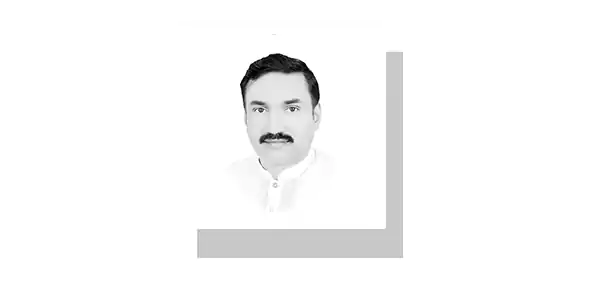PAKISTAN grapples with multiple socio-political challenges and economic crises, but its most prominent challenge is the gender gap, rooted in deep-seated socio-religious norms and customs. With a population of around 227 million people, consisting of 49.2% females, Pakistan ranks poorly in the Global Gender Gap Index Report 2022. It stands at 145 out of 156 for economic participation and opportunity, 135 out of 156 for educational attainment, 143 out of 156 for health and survival, and 95 out of 156 for political empowerment.
The gender gap in Pakistan’s electoral rolls amounts to approximately 12.5 million. UN predicts that achieving gender parity in national legislatures will not be possible before 2063 at the current pace recorded in 2021. In response to the rise of the knowledge economy and SDGs 2030, various economies are prioritizing inclusive growth by embracing digitalization. On the flip side, Pakistan exhibits substantial mobile gender gaps, with 38% of Pakistani women having lower mobile phone ownership rates compared to men, and 49% experiencing limited mobile internet usage.
Economically, women make up only 22.63% of the labour force, earning just 16.3% of men’s income. The informal sector in Pakistan heavily relies on women, with 81% of the 5.26 million workers being female. Despite their significant contribution to the informal economy, women face low-income security, inadequate nutrition, occupational health issues, lack of social protection, and heightened economic vulnerability during crises, earning meagre monthly incomes of PKR 3,000-4,000. NADRA, in partnership with the World Bank, successfully digitized a household survey, leveraging innovations such as big data. Through this process, NADRA identified 2.3 million eligible beneficiaries under Benazir Income Support Program and established the National Socio-Economic Registry (NSER) for the first time in the nation’s history. During the COVID-19 pandemic, the Federal Government utilized this database to allocate PKRs 179.2 billion to 16.8 million households. The static database has been transformed into a dynamic one, and the number of regular beneficiaries has now reached 7.8 million. It also prioritizes women’s appointments, resulting in women currently working in over 93% of NADRA registration centres. The number of women holding Office In-Charge positions has risen from 94 a year ago to 209 in 2023.
In Pakistan, ID cards serve as a crucial document for accessing rights, such as legal protection, property entitlements, and the ability to vote. Transgender individuals have historically faced marginalization and identity crises in Pakistan, as they were not granted the right to obtain ID cards. During the COVID-19 pandemic, the transgender community encountered additional challenges due to the inability to engage in their daily activities, and the lack of ID cards prevented them from accessing government-sponsored social security programs or receiving assistance from charitable institutions. However, recent developments have addressed these issues. Transgender individuals are now provided with free ID cards, employed in NADRA, and designated focal persons at all NADRA Centres to facilitate their needs. A special helpline staffed by transgender employees has also been established to offer guidance and support on registration. As a result, transgender individuals can now access their fundamental rights and avail of reserved quotas through their ID cards.
NADRA has also introduced free, lifetime Executive category ID cards for Persons with Disabilities (PWDs). These cards bear a disability logo and are accompanied by a birth registration certificate. As a result, the registration of PWDs has exceeded 555,000 individuals, including 395,000 physically challenged, 37,000 hearing impaired, over 24,000 visually impaired, and more than 100,000 mentally challenged individuals. This initiative enables PWDs to access their entitled rights and strengthens policy makers’ ability to rehabilitate and empower them. Previously, the government lacked an accurate database for these special individuals.
This progress is attributed to the swift digitalization of women, transgender and persons with disabilities’ registration, their economic empowerment and enhanced electoral enrolment under the special initiatives to enhance inclusive registration. These efforts have also resulted in a reduction of the gender gap in identity card registration in metropolitan cities and peripheral areas, decreasing from 12% to 8.6% in the past year which accelerate the path towards achieving gender parity in national legislatures by 2030, rather than the initially projected 2063. In a nutshell, innovation and technology have the potential to empower marginalized groups globally. By adopting and scaling up technological and digital innovations, these groups can assert their rights, accelerate progress, challenge harmful gender norms, eliminate gender-based violence, and achieve gender equality. In Pakistan, inclusive growth requires bridging the digital gender divide and leveraging technology to advance the rights of marginalized groups, including women, transgender individuals, and persons with disabilities.
The government should enforce regulations, while the public and private sectors foster development and the media promotes an inclusive technological environment that eliminates gender inequality and enables marginalized groups to flourish without experiencing violence. NADRA serves as a living case study in bridging the gender gap and advancing progress toward gender parity. The champions who ushered in an era of digitalization, inclusivity, and sustainability within institutes were, alas, unable to weather the storm amidst a polarized atmosphere. Regrettably, individuals of such calibre find it arduous to endure in these esteemed institutions owing to the prevailing socio-political polarization in Pakistan. Consequently, a staggering number of 765,000 individuals departed from Pakistan to seek opportunities abroad in the year 2022 which encompassed a significant portion of 92,000 highly-educated professionals, including doctors, engineers, information technology experts, and accountants.
—The writer is an Assistant Professor (PhD Financial Economics) at the National University of Modern Languages, Islamabad.
Email: abwahid.fms@gmail.com







